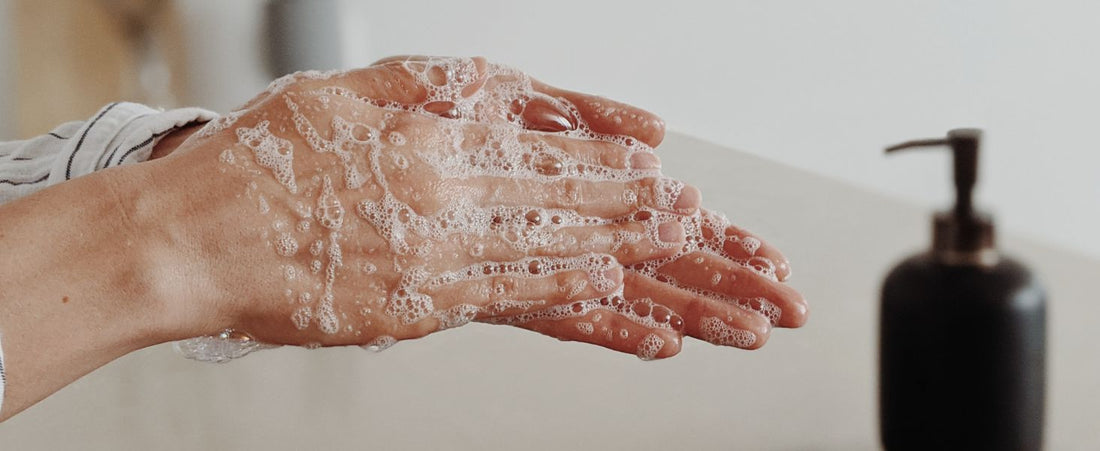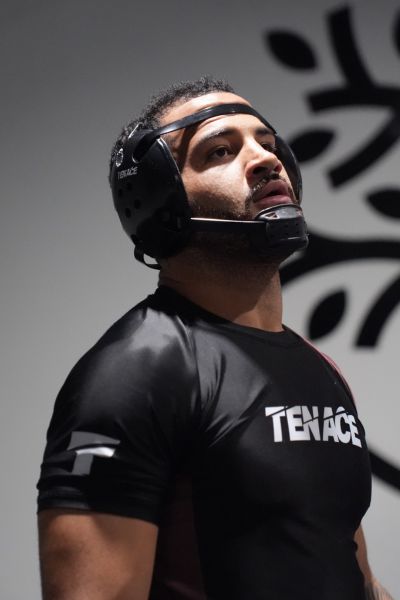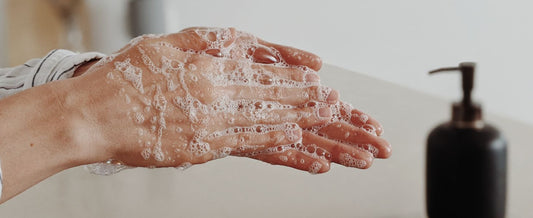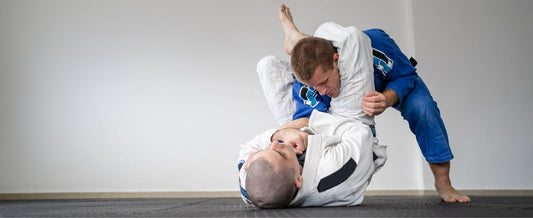
Hygiene matters for BJJ, Grappling, and MMA fighters.
- 7 Habits That Accelerate Your Progress in BJJ and Grappling – Tenace
- What to eat the day before and on the day of a BJJ or Gra competition – Tenace
- The secret to improving faster in Jiu Jitsu – Tenacious
Technique and physique matter, but your skin is your first "gi." In contact sports, hygiene isn't just about smell: it's about performance, injury prevention, and even respect for your fellow athletes. If you train hard and often, this guide will help you stay healthy, avoid skin infections, and extend your athletic career.
1) Why hygiene is key in contact sports
The tatami is an environment where sweat, bacteria, and fungi accumulate. Every time you train, your skin is exposed to constant friction and direct contact with other athletes. If you don't take precautions, the risks multiply.
We're not just talking about discomfort: skin infections are one of the main reasons many fighters have to stop training for weeks. These range from simple fungal infections to staph infections, which can be serious if not treated promptly.
Hygiene is essential for your safety and performance. Just as you wear knee pads to protect yourself on the mat, you need hygiene habits that allow you to train safely and without infecting others.
2) Common risks due to poor hygiene (and how they manifest)
Poor hygiene in BJJ or grappling quickly takes its toll. The most common problems are:
- Fungal infections: athlete's foot or ringworm, very common due to heat and humidity.
- Bacterial infections: such as folliculitis or impetigo, which appear with small wounds or burns from the tatami.
- Staphylococcus: uncommon, but serious. It can quickly become complicated if left untreated.
- Burns and irritations: due to constant friction with the tatami or the gi.
And let's not forget the most basic issues: persistent odor, discomfort, and damaged skin. Training like this not only harms you but also your teammates.
3) Your daily hygiene routine (pre-workout / post-workout)
This is where the battle is won. A good pre- and post-workout routine can prevent most problems.
Before training
- Arrive at the tatami clean. If you've been working or are sweaty, take a shower first.
- Wear clean clothes. Your gi, rashguard, and shorts should be freshly laundered.
- Trim your nails. Scratches and scrapes are entry points for infections.
- Flip-flops should always be worn outside the tatami. Walking barefoot outside increases the risk of fungal infections.
- Cover wounds. Use strong dressings and, if the wound is large, it's best not to train.
After training
- Take a shower as soon as possible. Sweat shouldn't dry on your skin.
- Use antibacterial soaps specifically designed for wrestlers. Regular soap doesn't always eliminate bacteria and fungi.
- Dry yourself thoroughly. Pay special attention to skin folds, feet, and groin.
- Remove wet clothes from the backpack. Wash immediately or hang to dry.
Remember: hydrated and well-cared-for skin is more resilient than dry and neglected skin.
4) Care of equipment and clothing
Golden rule: everything that touches the tatami is washed after each use .
- Gi/Kimono : Wash inside out at 30–40°C, mild detergent; avoid fabric softener (it traps odors). Air dry (avoid tumble drying if you don't want shrinkage). If it smells "damp," pre-soak with active oxygen .
- Rashguards/shorts : inside out, in a laundry bag, 30°C, gentle cycle. No fabric softener. Air dry.
- Knee/elbow pads : rinse quickly after training; wash gently and dry completely (perpetual moisture is a breeding ground for fungus). Do not store them closed.
- Earmuffs/gloves : clean with disinfectant spray after each session and leave to air dry.
- Backpack : always empty, ventilate and clean inside with cloth and disinfectant 1-2 times/week.
- Towels : individual use; wash at 60°C if possible.
To eliminate odor, you can add 1 tablespoon of baking soda to the wash to help neutralize smells; and white vinegar (in the fabric softener compartment) helps to remove residue.
5) Why use specialized soaps for fighters?
A good soap for contact sports should cleanse without disrupting the skin barrier . Look for formulas:
- With natural hygienic support agents (tea tree oil, eucalyptus, thyme, activated charcoal).
- Skin- friendly pH ; no harsh sulfates, no unnecessary colorants.
- With a moderate fragrance (the "ultra-perfumed" tends to irritate).
This helps to:
- Reduce microbial load after training.
- Avoid drying out/irritating the skin (damaged skin = higher risk of infection).
- Maintain a pleasant scent without layers of perfume that only mask it.
That's why at Tenace we're working on a line of soaps specifically for grapplers and wrestlers, designed for everyday use, and we'll be launching it very soon. If you want to be the first to know, subscribe to the newsletter at the end of this post.
6) Hygiene = respect
Jiu-Jitsu and grappling are contact sports, but they're also about values. Training clean is a way of showing respect to your training partners.
- Do not train if you have visible infections.
- Always wear flip-flops outside of the tatami.
- Wear clean, fresh clothes.
- Talk to your teacher if you notice any skin problems: it's better to stop for a few days than to infect the whole group.
A clean fighter is a responsible fighter.
7) Your “hygiene kit”
Always carry it in your backpack; these basics will make your hygiene as much a part of your routine as warming up.
- Specific post-workout soap .
- Disinfectant spray for equipment (knee pads, ear protectors, gloves).
- Quick-drying towel (microfiber).
- Flip flops .
- Band-aids/plasters and tape for fingers/minor scrapes.
- Barrier cream (zinc/lanolin) for areas of friction if you do double sessions.
- Breathable bag for dirty clothes (and another for wet pads).
8) Quick FAQs
Does a very hot shower "kill" more germs?
The key is soap + friction . Warm water protects your skin better.
Is antibacterial always better?
Not necessarily. Very harsh products can damage the skin barrier. Effective but gentle formulas are better.
Do I shave my arms/legs to "be cleaner"?
Avoid shaving right before training: micro-cuts increase the risk of infection.
What do I do about tatami burns?
Clean, dry, and cover before training. If it hurts, oozes, or doesn't improve: don't train and consult a doctor.
----
Hygiene isn't an extra; it's part of the training plan. With healthy skin, clean equipment, and consistent habits, you train harder, get injured less, and perform better . Plus, you're taking care of your teammates and your academy.
At Tenace we help you make it easy:
- Coming soon: Tenace soaps for after the tatami.
- Now available: knee pads , elbow pads and ear protectors for non-stop training.
👉 Follow us on Instagram @tenacesports , subscribe to the newsletter for the launch and use code T-10 for -10% off your protection order.







